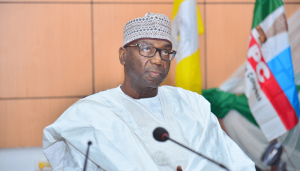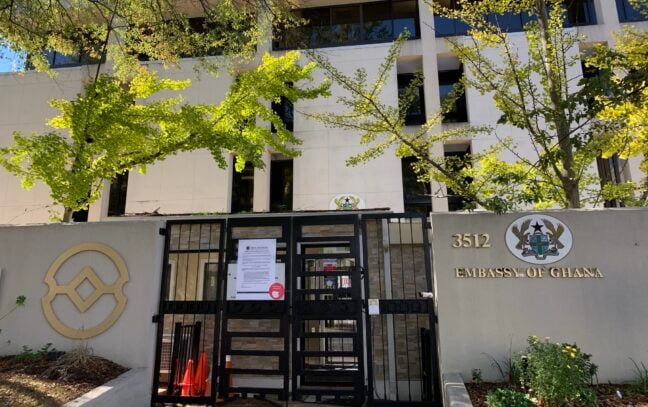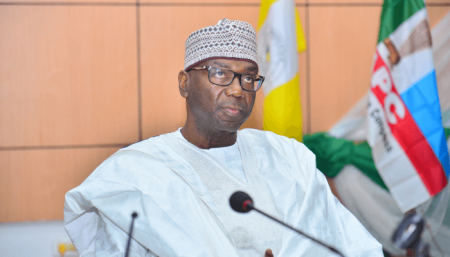The abrupt closure and subsequent reopening of Ghana’s Embassy in Washington, D.C., has sparked a firestorm of criticism from the Minority Caucus on Parliament’s Foreign Affairs Committee. They have labeled the incident a self-inflicted wound on Ghana’s international reputation, arising from impulsive and ill-conceived actions by the Minister for Foreign Affairs and Regional Integration. The Minority’s condemnation centers on the perceived lack of due process, the damage inflicted on the morale of Ghana’s diplomatic corps, and the financial implications of the Minister’s sweeping decisions. The entire episode, they argue, reflects a disregard for established diplomatic protocols and a concerning lack of strategic foresight in managing matters of national interest.
At the heart of the controversy is the Minister’s announcement of the embassy’s closure via a Facebook post – a method deemed not only unconventional but also disrespectful to Parliament and established diplomatic norms. The Minority contends that such a drastic measure, taken without prior consultation or formal communication, demonstrates a disregard for institutional processes and a concerning trend towards populist decision-making. Moreover, they argue that the closure was disproportionate to the alleged misconduct of a few individuals at the consular section. Past instances of malfeasance, they point out, have been handled discreetly and effectively without resorting to such extreme measures that jeopardize the nation’s image and the morale of its diplomatic staff.
The swift reopening of the embassy merely three days later further underscores the Minister’s rash judgment, according to the Minority. This rapid reversal not only confirms the lack of careful consideration behind the initial decision but also amplifies the perception of incompetence and instability within Ghana’s foreign policy apparatus. The subsequent actions taken by the Minister, including the suspension of all local staff, the dissolution of the embassy’s IT department, and the recall of Foreign Service officers, have further exacerbated the situation. These sweeping measures, the Minority argues, unjustly cast a shadow of suspicion over the entire diplomatic corps and have understandably demoralized dedicated officers serving in various missions around the world.
The Minority’s concerns extend beyond the immediate fallout from the embassy closure. They have expressed alarm over reports of a potential mass cross-posting of all Foreign Service officers who have served more than two years at their current stations. Such a move, they warn, would not only disrupt ongoing diplomatic efforts but also carry significant financial burdens for the state. The costs associated with repatriation, relocation, and settling-in allowances, particularly when implemented outside the normal rotation cycle and without adequate planning, could run into millions of dollars – a wasteful expenditure at a time when fiscal prudence is paramount. The Minority views this potential move as further evidence of the Minister’s impulsive decision-making and disregard for the financial implications of his actions.
The crux of the Minority’s argument lies in their assertion that the Minister’s actions have undermined the dignity and credibility of Ghana on the international stage. They emphasize the need for prudence, institutional respect, and strategic coordination in handling sensitive matters of national interest. Impulsive declarations on social media, they argue, are not only detrimental to Ghana’s image but also erode the trust and confidence that are essential for effective diplomacy. The Minority thus calls for a course correction, urging the Ministry of Foreign Affairs to prioritize restoring the nation’s reputation and rebuilding the morale of its dedicated Foreign Service officers.
The Minority has pledged to hold the government accountable for its foreign policy decisions. They insist on transparency and adherence to established diplomatic protocols. Their critique of the embassy closure and subsequent actions serves as a stark warning against impulsive decision-making and the potential for self-inflicted damage to national interests. They advocate for a more considered and strategic approach to foreign policy, one that prioritizes the long-term interests of Ghana and upholds the nation’s dignity on the global stage. They have made clear their intention to closely scrutinize the government’s actions in this domain and ensure that the lessons learned from this incident are not forgotten.














